The Technical Production Guide
One of the biggest challenges in managing a live event is engaging the audience. You have one shot at getting it ‘right on the night’ and there’s no room for error.
With over 25 years of experience in technical production, we’re proud to transform live events into incredibly engaging audio-visual experiences. Whatever the vision, no matter how big or small, we work with our clients to bring their ideas to life and achieve the results they want.
We do this by using the latest industry-leading technology and working to deliver the best combination of sound, light, video and special effects to captivate audiences for all occasions.
But what exactly is technical production, and why is it so important? Let’s start with the basics…
What is technical production?
Technical production includes the planning, logistics, installation, and operation of technical equipment and processes for festivals and live events. It involves everything from the initial production and site planning to the coordination and execution of the day itself.
A technical production company, like AF Live, can take care of all of these details, handling every aspect of the technical set-up. We hone in on our technical expertise, creative vision, and meticulous attention to detail to create successful and memorable events for all occasions.
What role does technical production play in events?
A vital element of any event is to engage the audience. This means customizing the event to fit the sound, theme, and overall experience you want your attendees to have. Ultimately, it’s utilising technology to control the atmosphere and emotion, and building connections with the audience. Read on for an overview of what’s involved.
1. The site visit and production planning
The initial site visit is where we assess stage locations and orientation, vehicle access for loading and de-rigging, potential licensing issues, noise restrictions from the surrounding area, the venue’s capacities, and the most suitable sound solutions for the event.
From this, we create a detailed production plan. This describes how we’ll execute the production processes and includes the human resources, raw materials, budget management, scheduling, and equipment needed. For festivals and larger-scale live events, we start the planning 10 months in advance. We start planning four months in advance for smaller events.
2. Sound design
Crystal-clear sound is critical. The aim is for every participant to have the same acoustic experience, no matter where they stand, sit, or wander. That’s why sound system design is one of our most important tasks, closely followed by procuring site-wide sound systems.
Sound systems are bespoke for every client, so it’s important that we use technology to map out the space and ensure the best performance possible.
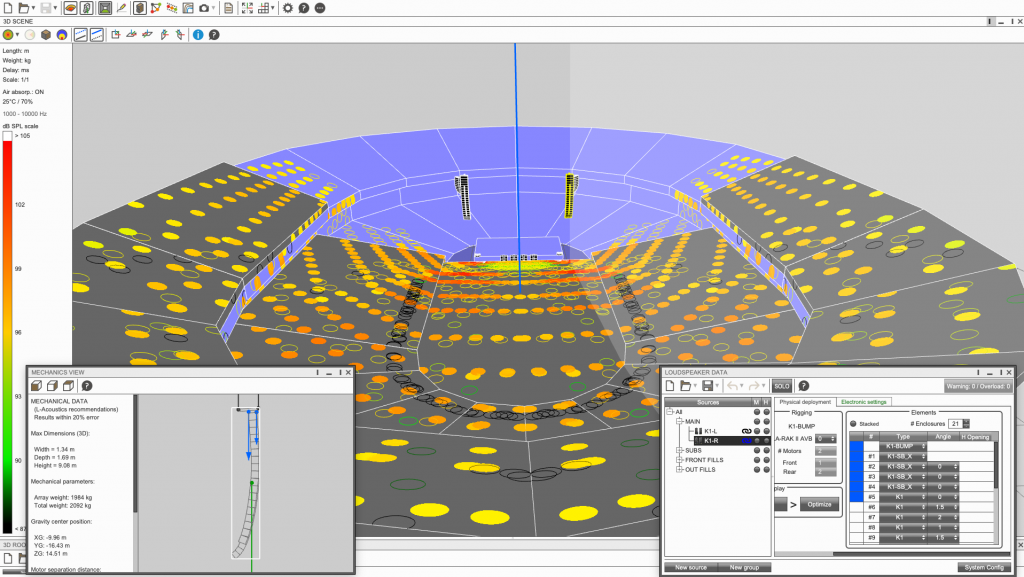
We incorporate technology in a way that has minimal impact on aesthetics without affecting overall sound quality. It’s a fine balancing act that is constantly reviewed and assessed to improve sound performance for our clients year after year.
The sound and integrating systems all depend on the venue’s capacity. For example, for large-scale festivals with multiple stages, we have used onsite testing to deploy sound barriers ensuring minimal sound bleed between the spaces. For the Arcadia Spider stage, we created a 360-degree system for the spider-like complex metal structure so that the audience is immersed in sound no matter where they stand.
3. Lighting, video and SFX
Have you ever been to a live event without any lighting? Not only would you be surrounded by people in the dark, but the show would be boring. Along with sound, lighting is one of the most important things to keep your audience engaged.
The options for lighting and video are endless. Matching light with sound and video content will give you a fully immersive and captivating experience for your audience. You can also use light and colour to evoke emotions.
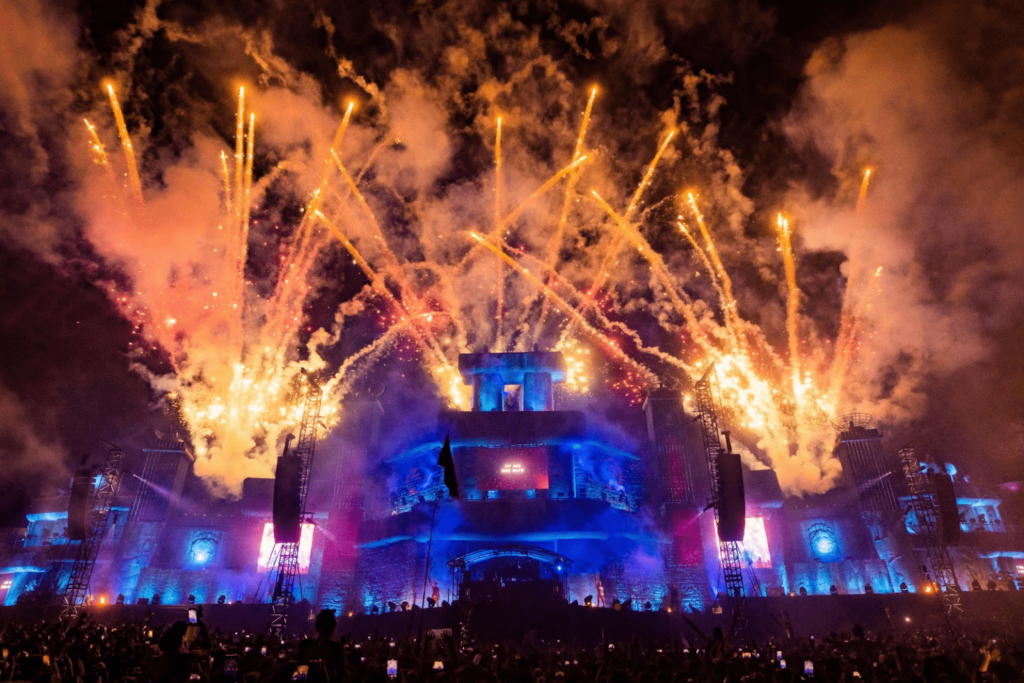
Working with our in-house partner, Wingnut Lighting Productions Ltd, we spend a significant amount of time in pre-production, planning and procurement of lighting, video and special FX equipment for our live events. Stocking a wide range of industry-standard products, we use top-quality equipment to create multiple special effects, transforming spaces of all sizes. We also take care of creative site lighting, using natural and architectural surroundings to help set the event theme.
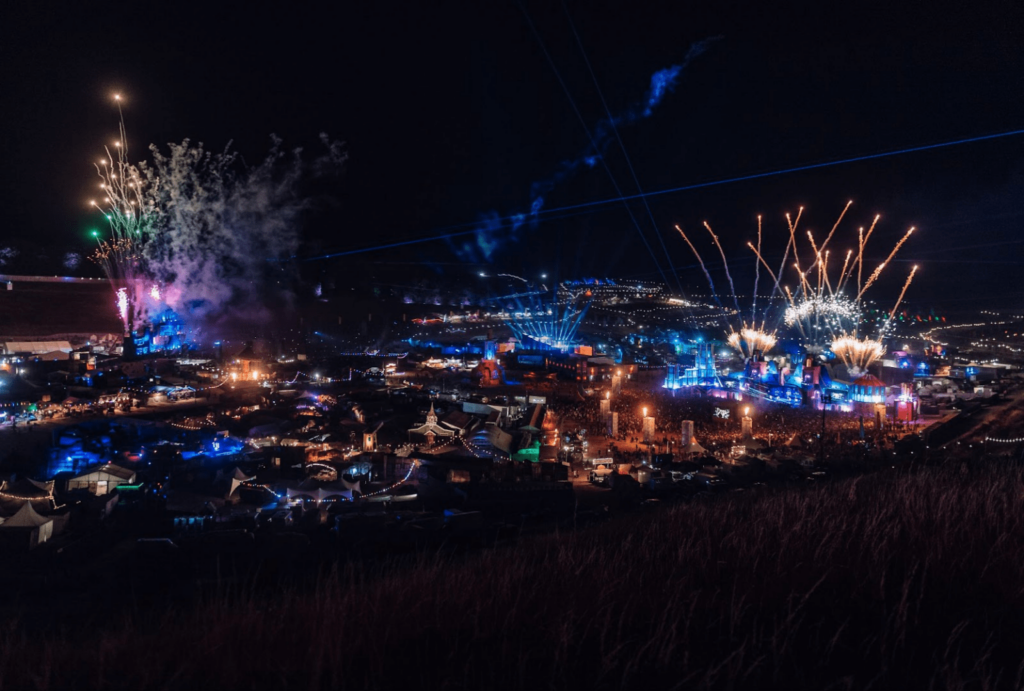
4. Creative set design
It’s the backdrop and creative stage setting that help ensure the audience engages with what they see and hear. Working closely with set and stage designers, we incorporate the technology into their creative designs to deliver mind-blowing stages.
5. Artist advancing
Each artist’s technical specification is reviewed and cross-referenced with the stage’s sound, lighting, and video specifications. We’ll then order any backline and DJ kit or any other specialist equipment to ensure all artist requirements are accommodated.
We also review the required space on stage, risers and scheduling of changeover times. We then publish a technical specification for each venue to be sent out and agreed with artist management in advance.
Not only does this work tick all the boxes for festival technical production, but it also means the artists, technical crew and crowd all have the same great experience.
6. Noise management
The last thing we want is a quiet festival… This is where noise management comes in! We use the topography of the land to create 3D sound system designs we can then use for acoustic modelling of the event site and help to manage off-site noise and adhere to license restrictions. We then liaise with our noise consultants and local regulatory authorities to prepare specific noise management plans, taking into account local licensing conditions.
Through a mixture of stage and sound barrier positioning, selecting the right sound system, and specialist acoustic treatments, our work ensures the best sound levels are maintained for maximum crowd satisfaction, but without over-spill in restrictive, sound-sensitive areas.
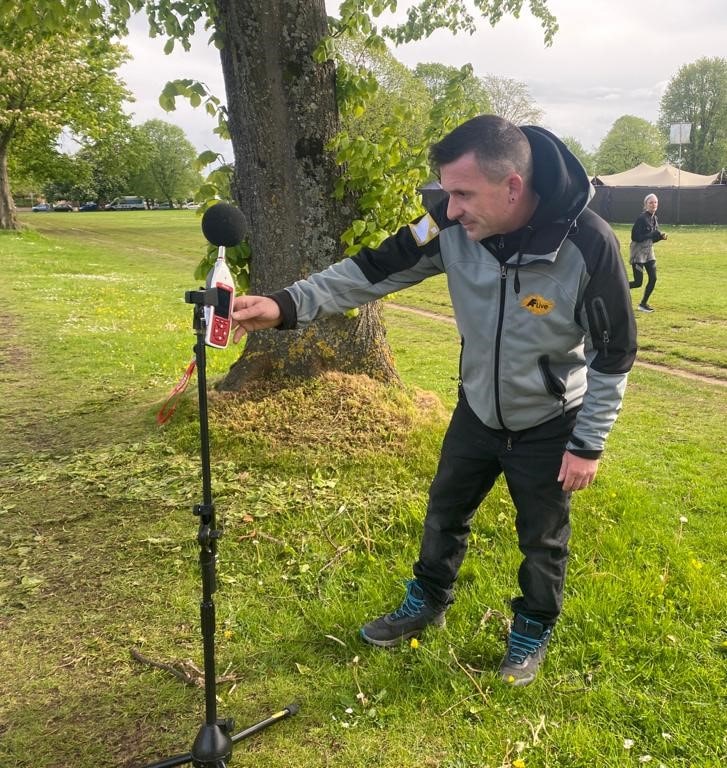
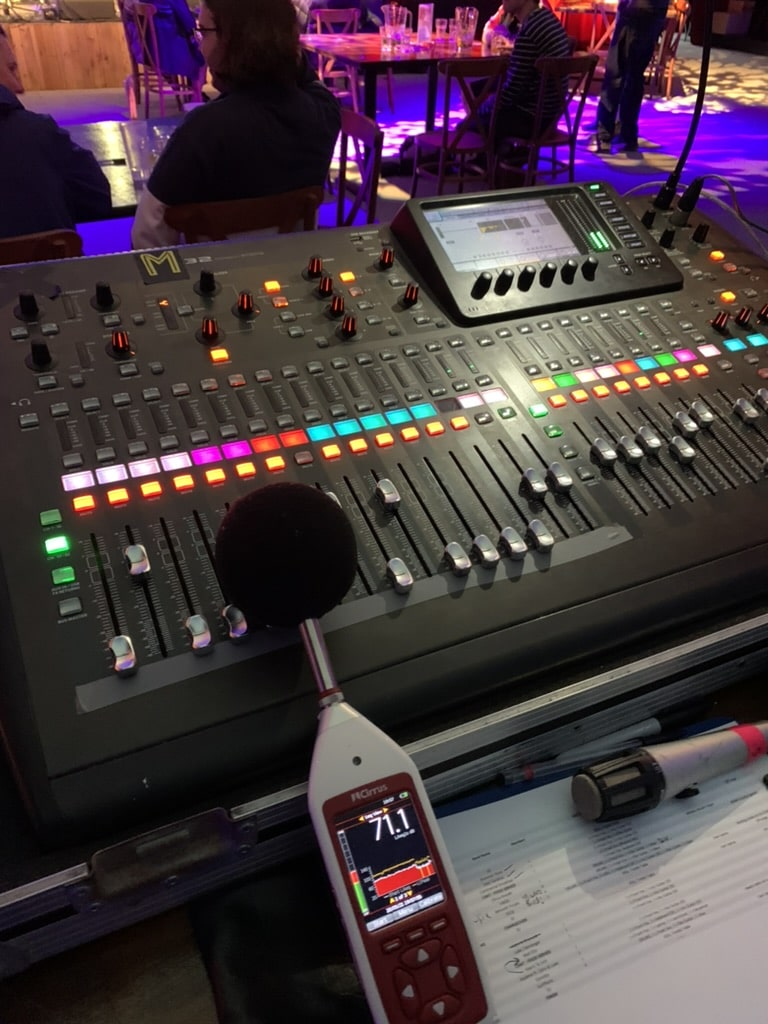
7. Infrastructure
We have to ensure the right infrastructure is in place before installing any equipment. This includes ordering and managing Plant, transport, cabins and containers for the technical elements site-wide. The AF Live team is fully trained in managing telehandlers and Moving Working Access Platforms (MEAPs).
Assessing power distribution and specifications is also a very important element of technical production. Specifying power supply and drawing of equipment producing cable maps for power distribution and drop locations. The required integrated systems will be very different for an event at a smaller venue compared to a renowned festival with live music playing simultaneously on multiple stages. We also take into careful consideration cabling routes to ensure no blocked walkways, doorways, staging, or other important areas.
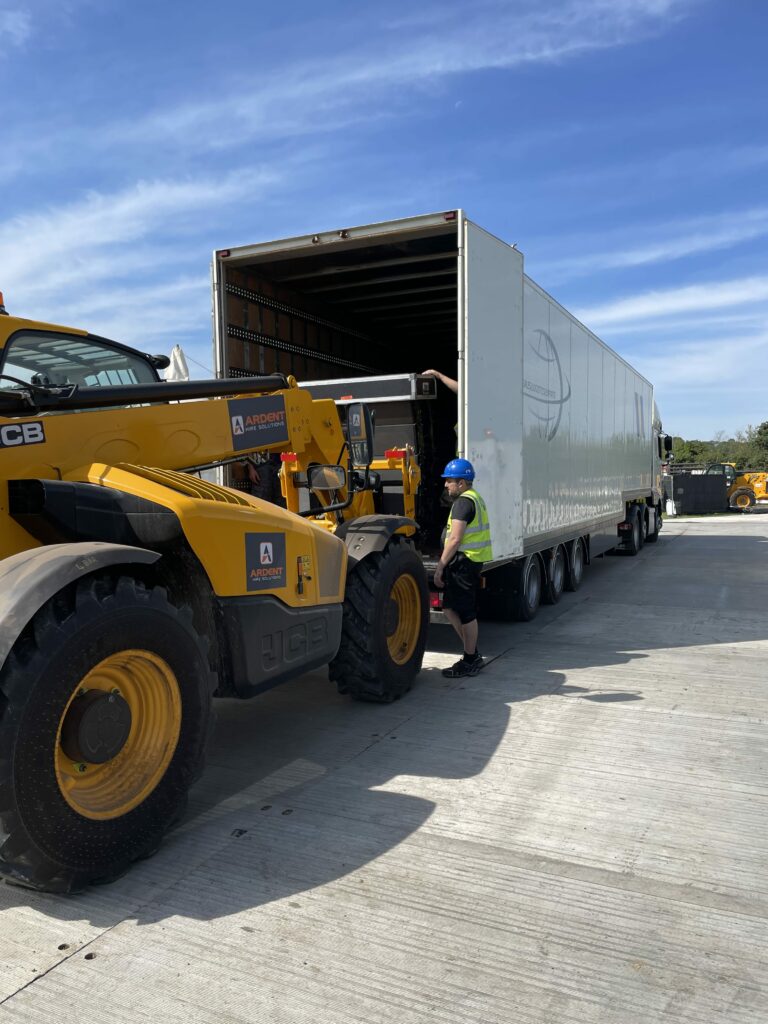

8. Engineers and crew
So, you have the sound, lighting, and system logistics sorted, what’s next? You’ll need an experienced team of project managers to assign engineers and technicians that will manage the installation, de-rigging and operating of the live show to ensure the event runs smoothly.
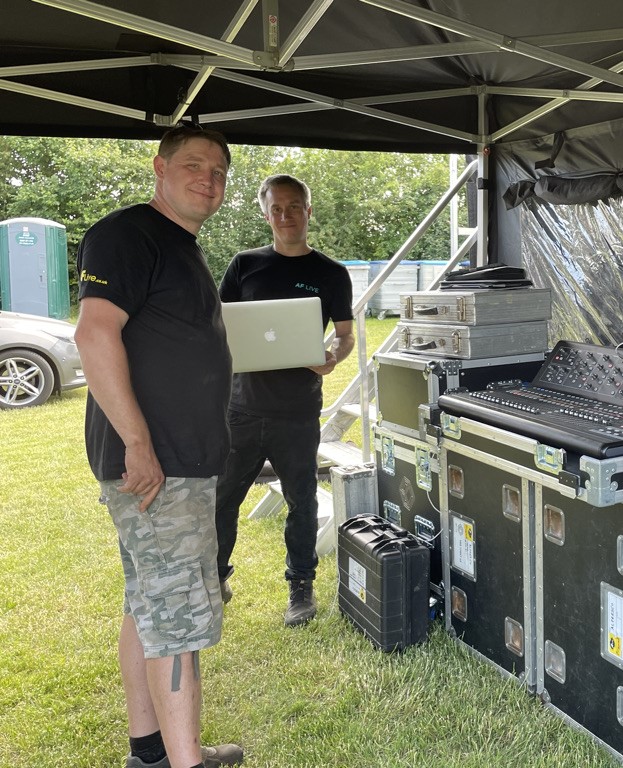
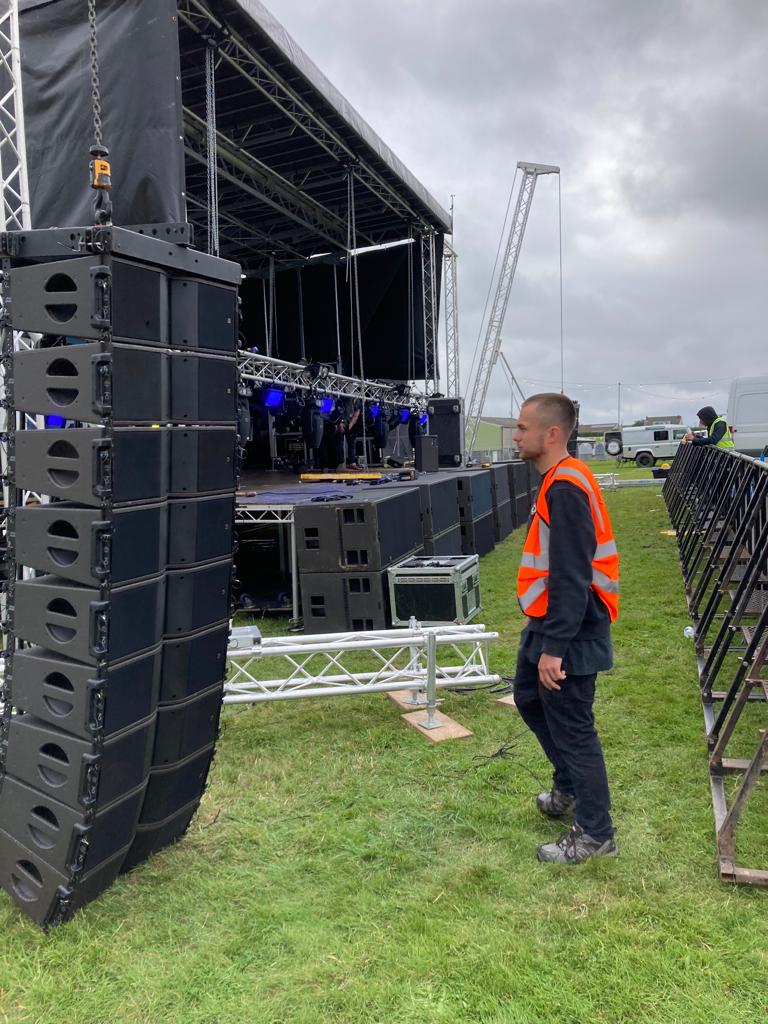
You can have the best quality equipment in the world, but without the skilled crew to manage it the show will be far from a success.
The AF Live team is expert at handling all AV equipment. We’re constantly travelling across the UK and Europe to deliver the best service for new and existing clients, solving any issues before they arise.
We pride ourselves in training the team regularly so that they’re qualified, confident, and safe in using all relevant technical equipment. Click here to read about our recent team training sessions.
9. Health and safety
Health and safety is a huge part of technical production. It helps you manage crew, suppliers, and attendees, and ensure they won’t be exposed to risk at any point from set-up to post-show breakdown.
To keep everyone on the same page, AF Live provides all crew with the relevant health and safety information during the pre-show accreditation process. We collate the health and safety documentation and disseminate site rules including emergency arrangements, first aid, toilets, wash facilities, hazards, speed limits, and parking, and approve RAMs and insurance for all onsite subcontractors. We find that a clear and competently implemented health and safety paper trail is the best way for event organizers to mitigate any risk.
10. Post-show breakdown
The post-show process is just as important as the pre-show planning. This is when the team breaks down the stages and technical equipment, loads the trucks to drive back to the warehouse, de-prep test and reloads for the next event.
Final step? It’s time to celebrate another successful event and look forward to the next!
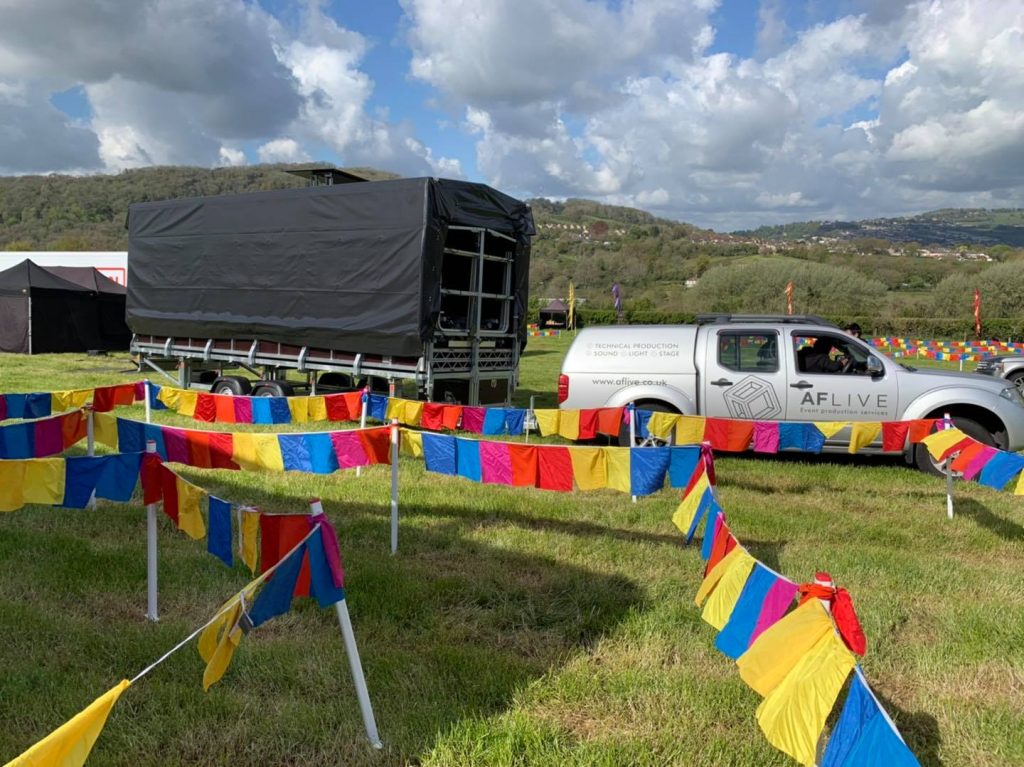
Well-executed technical production will leave the audience in awe of your event, but the planning can be overwhelming. An award-winning technical production company like AF Live can take care of all the technical requirements for you. We have the expertise to create engaging and immersive experiences for the audience, performers, vendors, and speakers, while ticking off all of the complicated tasks.
When it comes to technical production, AF Live does it all. Our technical production process starts and ends with our clients, which is why we put them at the heart of everything we do. We thrive on delivering successful live events and achieving results.
Get in touch with the team and learn more about our technical production services 👇
